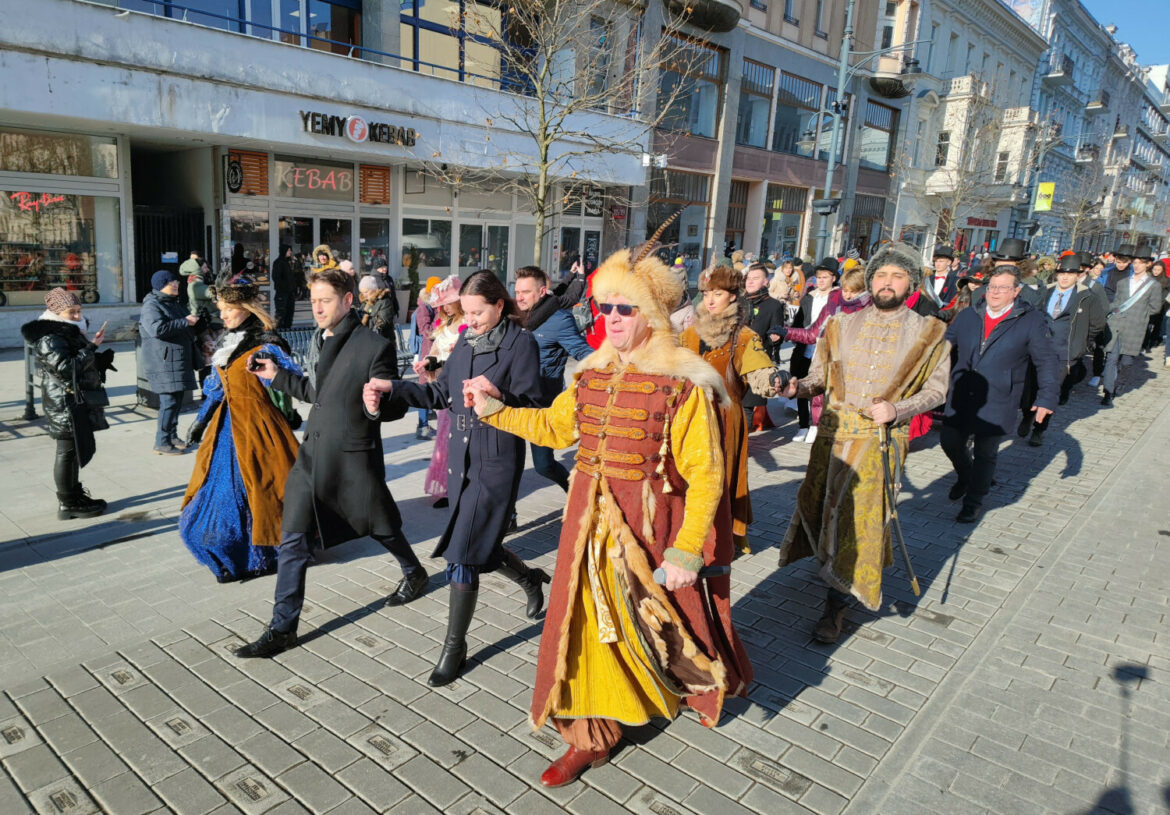Representatives of institutions and organisations involved in the development of the application to inscribe the polonaise, a traditional Polish dance, on the Representative List of the Intangible Cultural Heritage of Humanity have received the UNESCO Certificate. “This is the sixth Polish tradition on the world list of intangible cultural heritage”, reports the Ministry of Culture and National Heritage (MKiDN).
The ceremony, which took place at the premises of the Ministry of Culture and National Heritage, was attended by representatives of the Polish Section of the CIOFF – International Council of Folklore Associations, the Folk Art Festival, the Cracovia Danza Court Ballet, the National Institute of Music and Dance, the National Heritage Institute, the Municipal Cultural Centre in Józefów, the City Hall of Krakow, the Warsaw University Dance Theatre “Warszawianka” and the Song and Dance Ensemble of the Warsaw University of Technology.
The tradition of dancing the polonaise dates back to the 16th century under the name “chodzony”, and under the name “polonaise” it is known since the 18th century. This dance is one of the five traditional Polish dances and has a symbolic dimension. It is considered an open and egalitarian dance. The values accompanying it, such as equality and cooperation, determine its unifying character.
Nowadays, the custom of dancing the polonaise is inextricably linked with important life events. In almost every Polish secondary school, it is a tradition that it is this dance that solemnly opens the prom. The polonaise is also a frequent element of weddings and local celebrations. Due to its popularity, it is also danced spontaneously in connection with national holidays. It is a living tradition practised widely throughout Poland, whether in small towns or large urban centres.
The polonaise is the sixth Polish tradition to be inscribed on the UNESCO list. In previous years, the following traditions were inscribed: the Kraków nativity scene (2018), bee-keeping culture (2020), falconry (2021), the tradition of flower carpets for Corpus Christi processions (2021) and rafting (2022).
Arkadiusz Słomczyński





